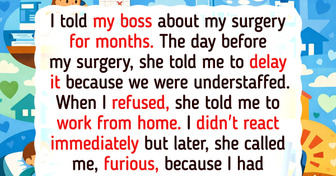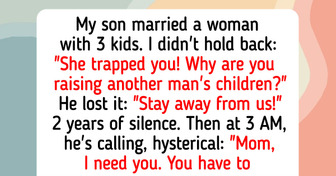12 Moments That Teach Us to Stay Kind, Even When Life Becomes Heavy

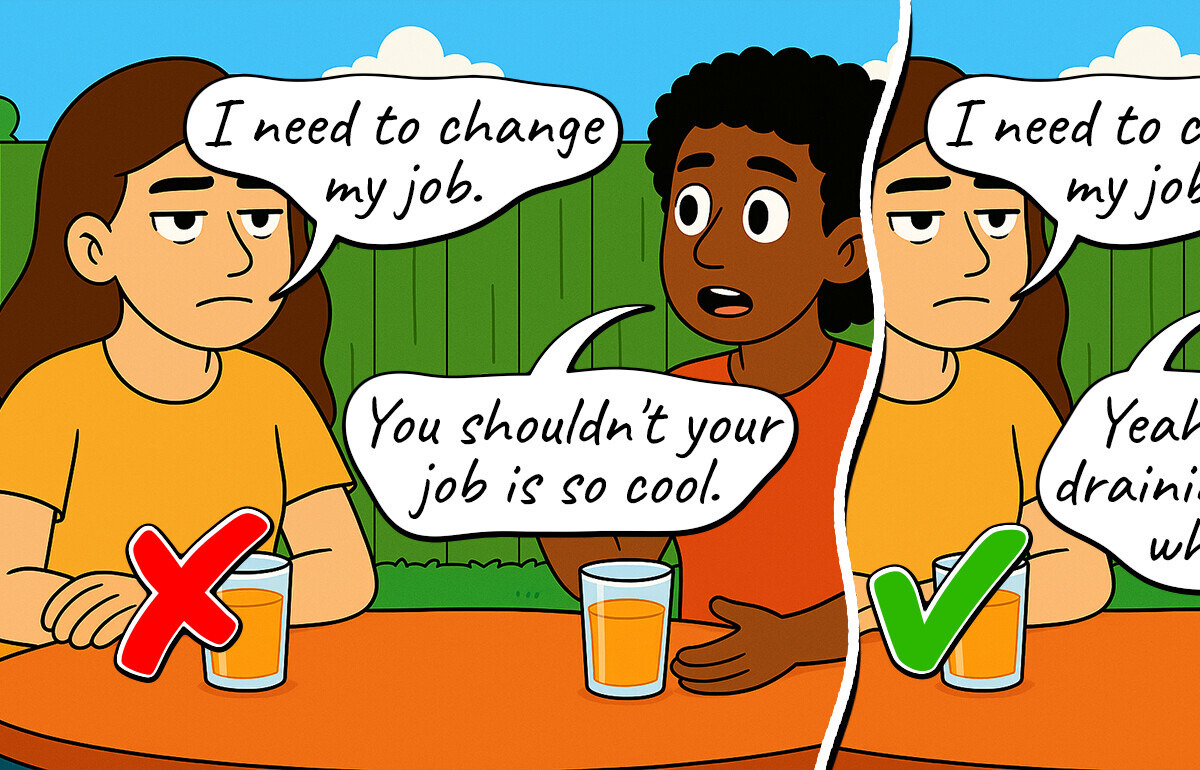
It’s subtle, but so effective, you might not even know you’re being controlled. Manipulation in a friendship that you once believed could stand through thick and thin, may be hard to spot. But if you know what to look for, you might find that the doubt you had is actually valid. Below are the subtle signs of a manipulative friend, that may help you evaluate the realness of your friendship.

There’s a difference, and it’s all in the intention. A compliment has no ulterior motive behind it, while flattery is a façade of kindness that seems good, but a person is actually using it to get something out of another person. This is usually the first step of manipulation, according to experts, and it can be dangerous, because if a person whom you consider to be a friend can manipulate you, they can control your actions and thoughts.
Why is this harmful?
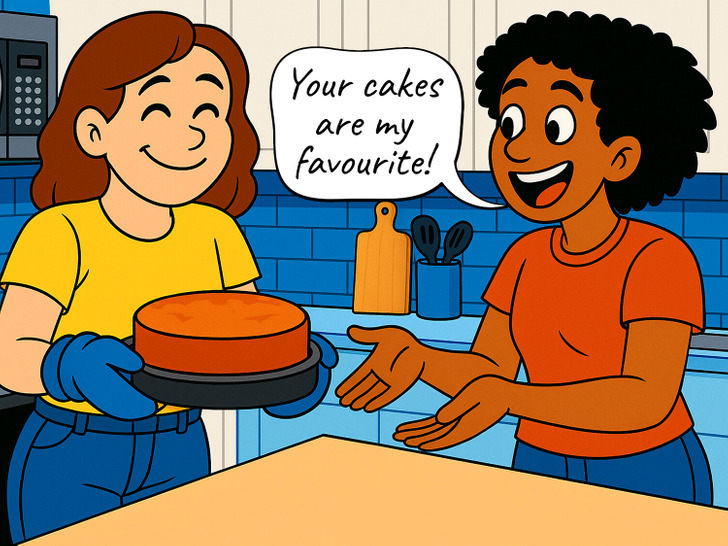
How to know?
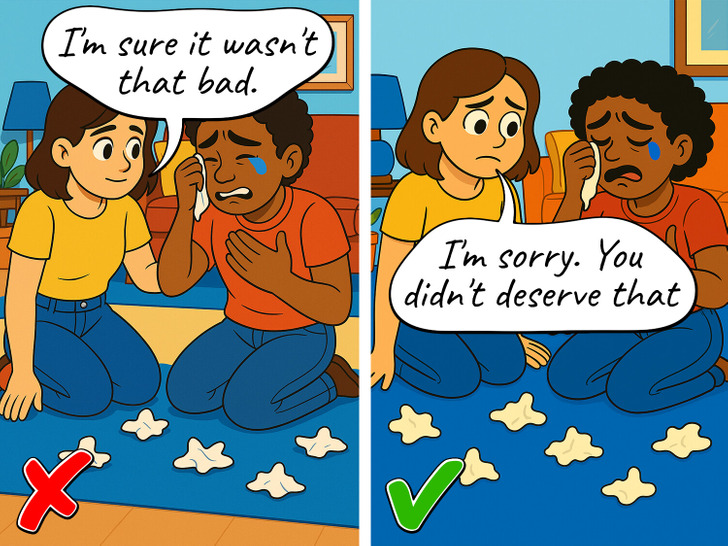
Manipulative friends usually show little care for how you feel. They may ignore your emotions, minimize what you’re going through, or seem uninterested when you open up about something that matters to you.
When someone doesn’t show empathy, it can leave you feeling ignored, undervalued, and emotionally exhausted.
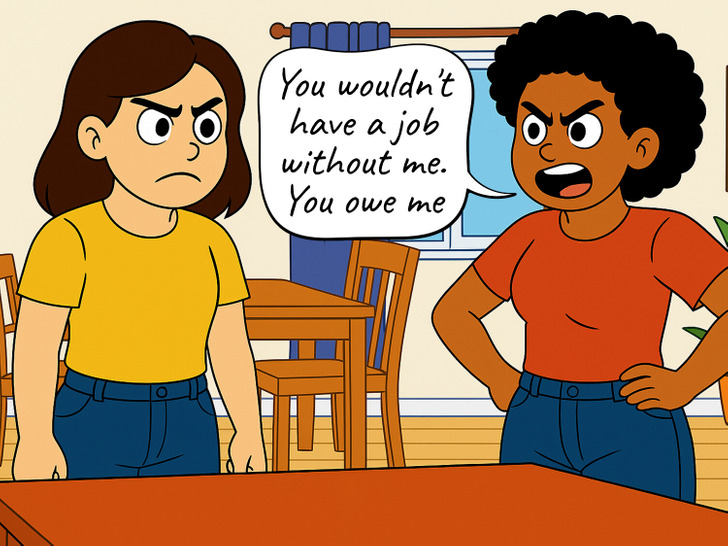
The friend makes you feel bad or guilty to get their way. According to therapist Jason Drake, this usually means the person brings up things they’ve done for you to pressure you into doing something for them.
It can sound like: “You owe me,” “I deserve this” or “If you don’t....then I won’t...”
They use guilt to control you into getting their way.
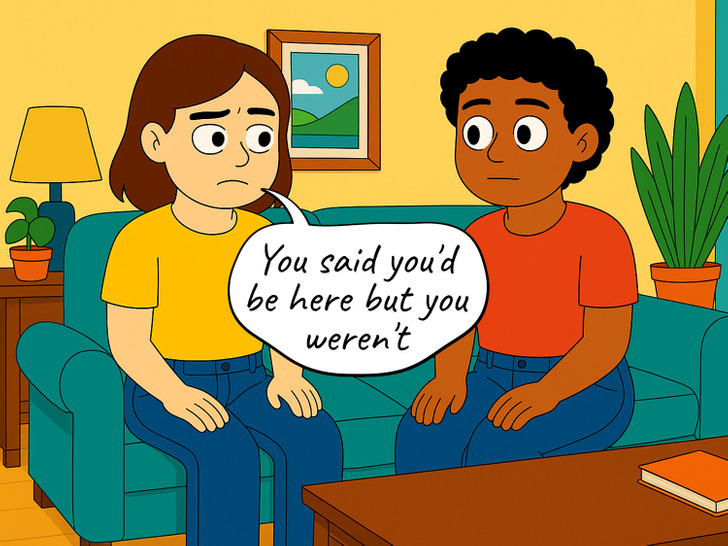
They want you to show up to their things, but every time you need them for yours, they say they’ll be there but never are. When someone often breaks promises or doesn’t keep their word, it can make you feel let down and like they don’t really care or respect you.

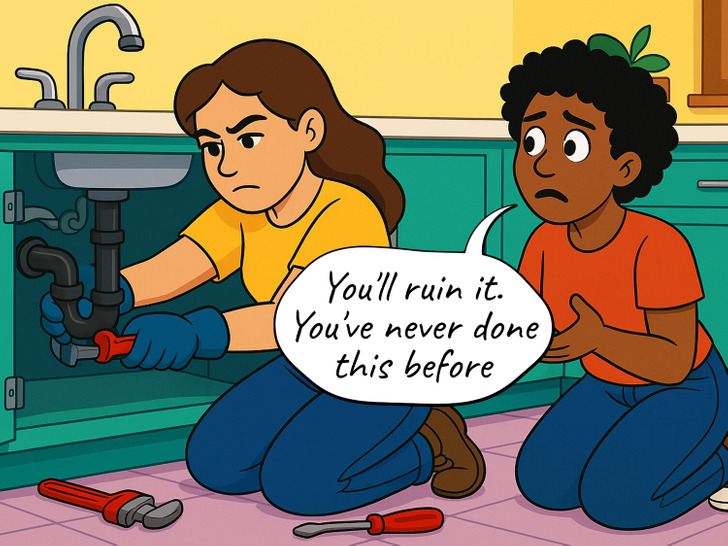
They try to make you question your abilities instead of encouraging or motivating you. If someone constantly tells you that you’re not capable or don’t get it, you might eventually start to believe them, and that can take a toll on your confidence and your well-being. Manipulators use this tactic to discourage you from taking action.
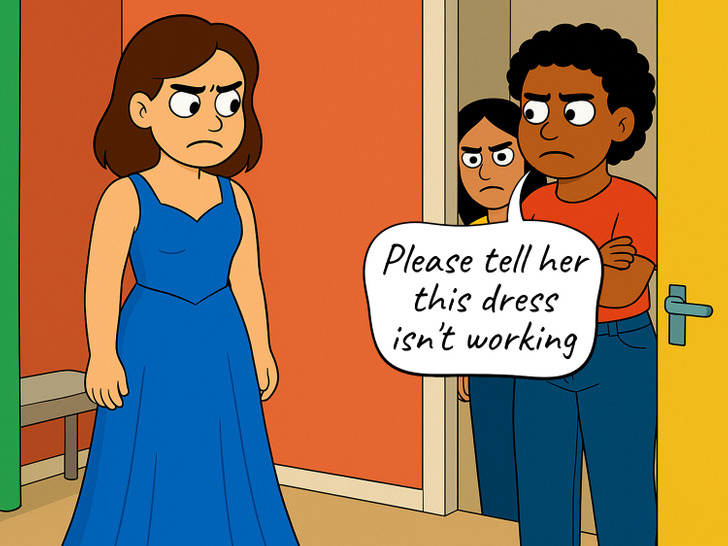
This is called triangulation — when someone brings a third person into a conflict instead of dealing with the issue directly with the person involved. This is often done to avoid taking responsibility or to avoid losing an argument.
How to Deal With It:
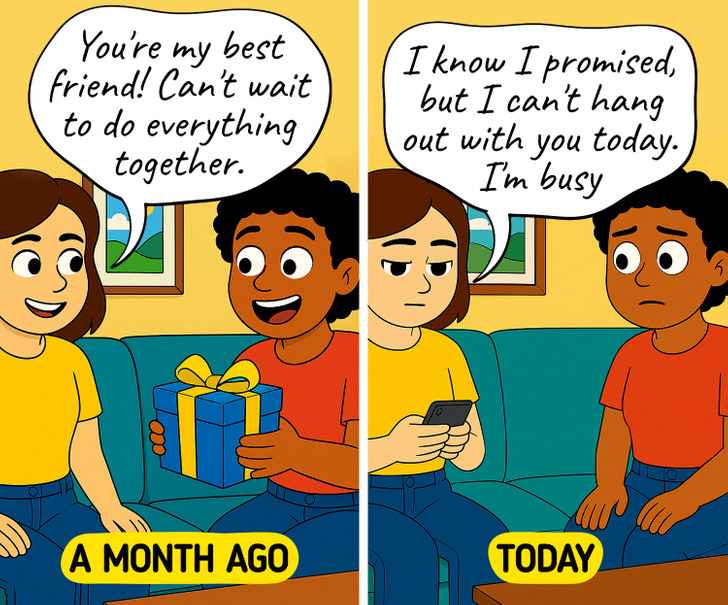
Your friend can overwhelm you with too much attention, gifts, compliments, or affection very quickly in the friendship. And at first, it feels amazing and exciting. But it’s over-the-top and can take over your time and emotions. As therapist Holland explains, once you’re hooked, that attention may suddenly stop, leaving you feeling confused and chasing after it.
Wanting to feel loved and appreciated in a friendship is normal, so you shouldn’t blame yourself if you’ve experienced this. The other person is at fault for using that desire to their advantage.
To protect yourself from love bombing:
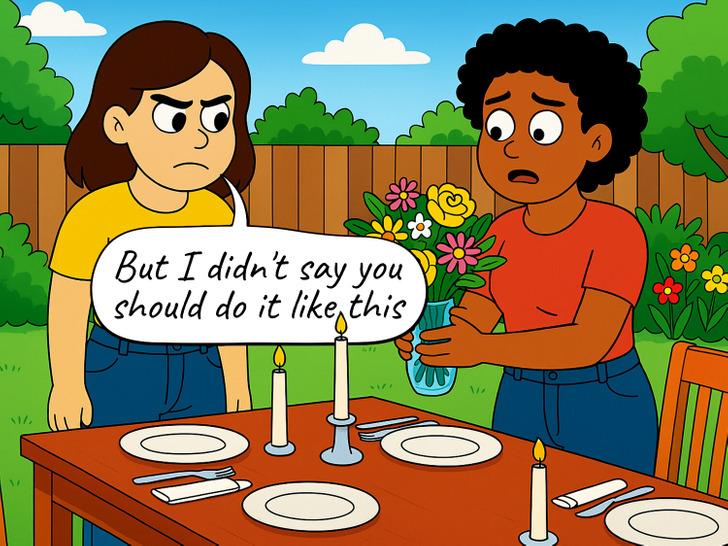
Manipulative people sometimes keep changing what they expect from you, no matter how hard you try to please them. It’s like chasing a goal that keeps moving — you end up feeling tired, frustrated, and like you’re never good enough, because with them, you never really win.
To protect yourself:
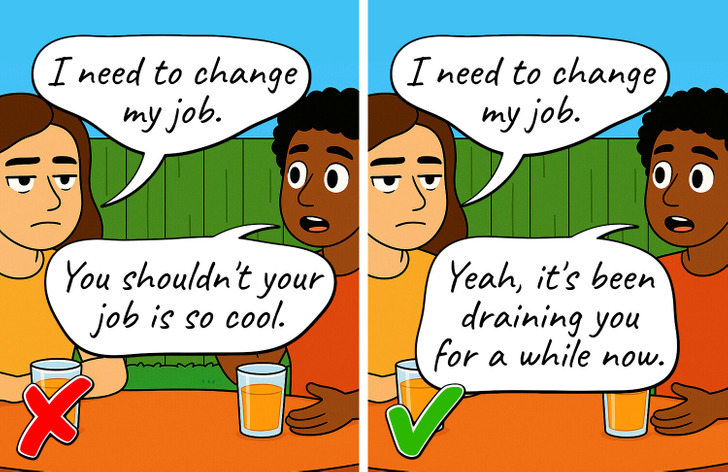
Your friend may control you by brushing off your questions or worries. This helps them stay in control and limit what you know or decide. They may also turn the conversation back to themselves when you’re upset, making your problems or opinions seem unimportant. They avoid your feelings and try to make it all about them.
If something doesn’t feel right, and you’re being treated in a way that doesn’t feel good to you, then you should probably listen to your gut feeling.

Manipulation can be sneaky, but here are some simple ways to protect yourself:
Some friendships are healthier than others, and celebrating true friends is what we love to do. Check out these friendships and the moments they passed the test of time.





